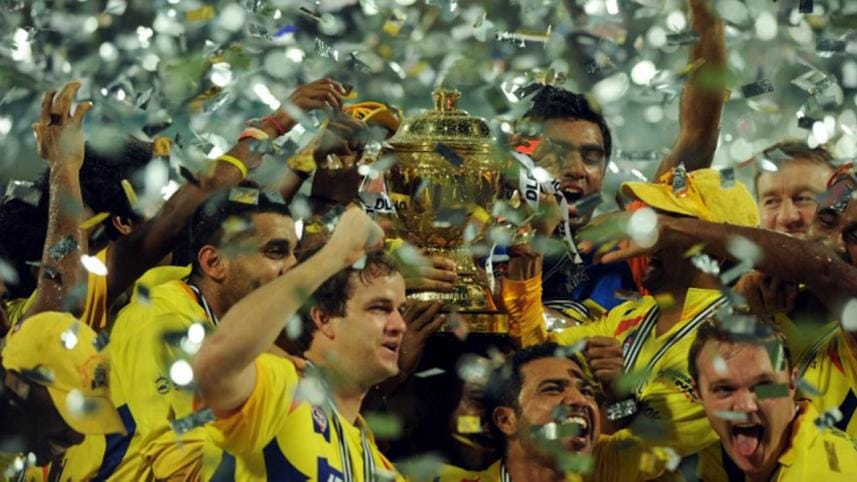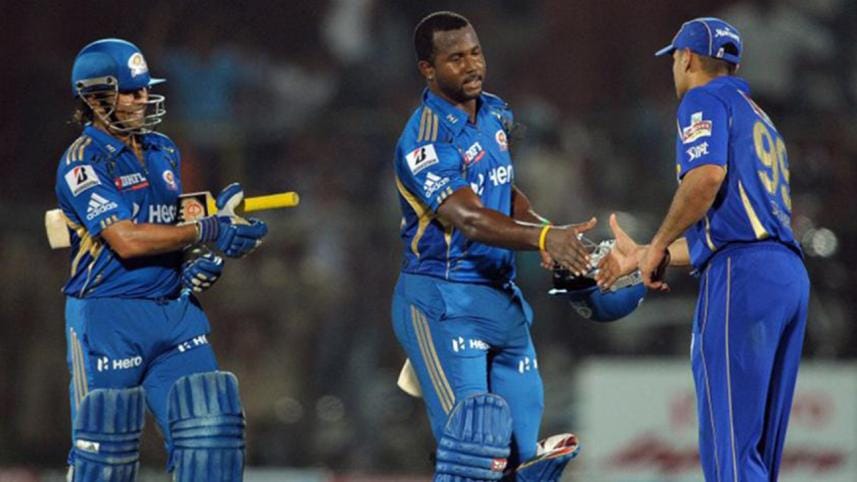IPL- the Indian Problem League?

The Indian Premier League (IPL) has changed cricket forever but it is a tournament that is rarely out of the news.
It has helped turn the sport into a billion-dollar business and has been a huge hit with India's cricket-mad fans.
But with two of its teams - the Chennai Super Kings and the Rajasthan Royals - suspended for two years after being found guilty of illegal betting, what will happen to the sport's richest cricket tournament?
As the men who run the game in India prepare to meet on Sunday to discuss its future, we look at the history of what some are now calling the Indian Problem League.
When and why did it start?
The IPL was set up by the Board of Control for Cricket in India (BCCI) as it was worried about the impact a rival tournament, the Indian Cricket League (ICL), would have on its control of the sport.
Media magnate Subhas Chandra, angry after being denied the rights to broadcast the national team's matches, tried to buy the country's best players for his league.
The BCCI responded by asking the flamboyant cricket administrator Lalit Modi to help it set up its own Twenty20 tournament. He brought in some of the country's wealthiest industrialists, including Mukesh Ambani and Vijay Mallya, as owners, along with popular Bollywood stars such as Shah Rukh Khan and Preity Zinta.
The ICL could not compete. Modi said at the time that cricket needed to reinvent itself to appeal to a younger audience. The IPL did just that.

The first match was played on 18 April 2008. The Kolkata Knight Riders took on the Royal Challengers Bangalore in front of a packed house at the Chinnaswamy Stadium.
What exactly is the latest crisis about?
Betting. It is a billion-dollar business in India but it is illegal.
Gurunath Meiyappan, one of the owners of the Chennai Super Kings, and Raj Kundra, a part-owner of the Rajasthan Royals, were found guilty of gambling on matches involving their teams. It followed an investigation by the former judge Mukul Mudgal into allegations of corruption within the league.
The man who runs it, Sundar Raman, has still not been cleared of the corruption charges against him - charges he denies -and investigations are continuing.
Many cricket fans are angry that the BCCI did not tackle the problems sooner.
Another casualty of the scandal is the man who runs world cricket, N Srinivasan. Gurunath Meiyappan is his son-in-law and his company, India Cements, owns the Chennai Super Kings. Srinivasan was forced to step down as the man in charge of the BCCI by India's supreme court, who described his attempts to cling to power as "nauseating".
Should we be surprised?
No. The IPL has always been at the centre of controversy. The second season of the tournament had to be played in South Africa after the Indian government said it could not provide security as it clashed with the elections .
It has also cost a government minister his job. The country's junior foreign minister Shashi Tharoor was forced to resign in April 2010 after it emerged that his partner, Sunanda Pushkar, was given a free stake in one of the teams .She died after being poisoned last year.
Modi, the man who set up the league, was sacked in April 2010 after being accused of financial impropriety. He is currently living in London and will not return to India as he says he will be killed by the underworld if he comes home.
Do you want some more controversies?
There have been protests against the scantily-clad cheerleaders who dance every time a wicket falls or a four is hit. And a number of players, among them the Indian World Cup winner S Sreesanth, have been banned for their links to bookmakers.
What next?
Who knows? As Mudar Patherya, one of India's leading cricket writers, said recently: "This is India - anything can happen."
In the short term the two suspended teams are likely to challenge their suspension in the courts. That could take some time, as India's legal system is not known for its speed.
What we do know is that it will be difficult for the league to continue with just six teams. The BCCI would have to renegotiate its lucrative television deal, so two new teams could be introduced into the IPL.
As for the players who turn out for the Chennai Super Kings and the Rajasthan Royals, they are likely to be put up for sale.
The ninth season of the IPL will go ahead but the scandals are affecting its credibility. We will have to wait and see if this impacts on its popularity.
Will the IPL ever be scandal-free?
Unlikely. The problems facing the IPL are a mirror of the problems facing the world's largest democracy. Corruption is rife across India. While that continues it is difficult to see how cricket and the IPL can remain immune from it.
The stakes are high and with millions of dollars involved in the sport, politicians and industrialists are desperate to be part of it.
India also has to deal with its gambling problem. Betting is illegal but millions of dollars are placed on IPL matches.
The industry is controlled by the underworld and, while they remain in charge, they will continue to try to fix matches.
Many feel the only way to tackle the problem is to legalise gambling. Until that happens you can expect to see the IPL on the front and back pages of India's newspapers.



 For all latest news, follow The Daily Star's Google News channel.
For all latest news, follow The Daily Star's Google News channel.
Comments